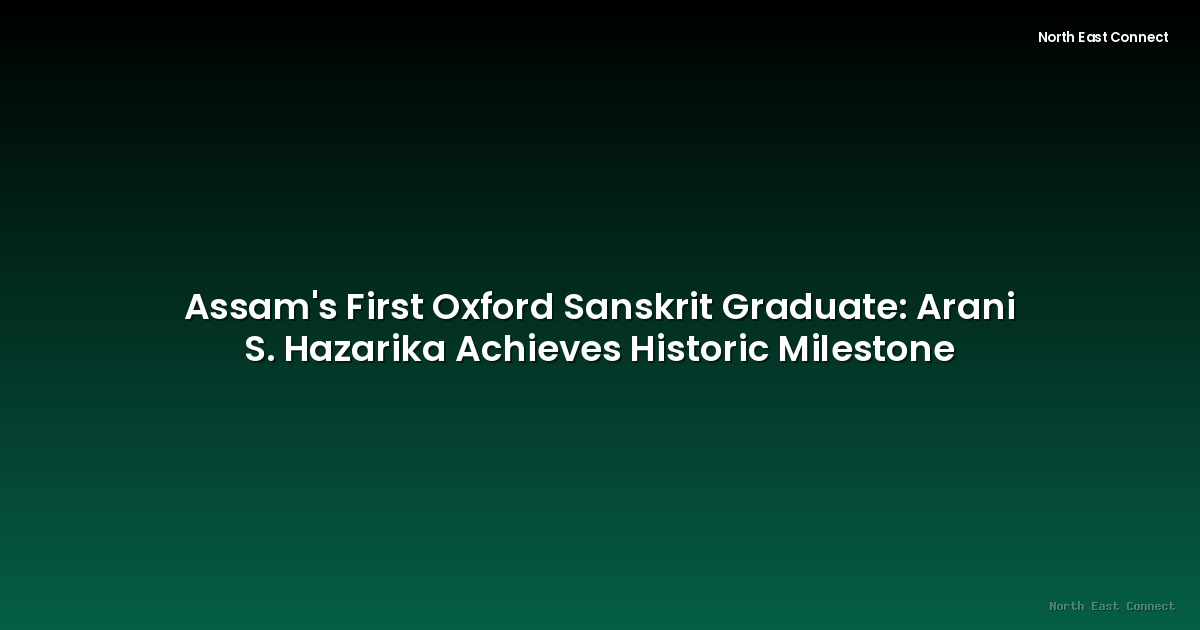2025-08-11 · News
Assam has reason to celebrate a significant academic achievement. Arani S. Hazarika has become the first person from the state to graduate in Sanskrit from the prestigious University of Oxford. This landmark accomplishment marks a significant moment, not only for Hazarika but also for the state of Assam and its rich Sanskrit heritage. The achievement underscores the growing recognition of Sanskrit studies on a global platform and showcases the potential of Assamese individuals in the field of higher education.
Hazarika's journey to Oxford is a testament to dedication and perseverance. The rigorous academic demands of Oxford's Sanskrit program are well-known, requiring exceptional linguistic skills, in-depth knowledge of ancient texts, and a profound understanding of the cultural context surrounding the language. Successfully navigating this challenging program demonstrates Hazarika's exceptional capabilities and commitment to scholarly pursuits. Further details about Hazarika's specific area of study within Sanskrit or thesis topic were not readily available in the original source material.
This accomplishment transcends individual success and holds broader implications for the state of Assam. It inspires younger generations to pursue ambitious educational goals and highlights the importance of cultural preservation and the study of classical languages. Hazarika's achievement serves as a powerful symbol of the intellectual capacity within Assam and encourages greater investment in education and academic excellence. The lack of readily available information on Hazarika's background and future plans prevent a deeper analysis of the socio-economic influences on this remarkable achievement.
The achievement also shines a light on the continued global relevance of Sanskrit. Despite its ancient origins, Sanskrit remains a subject of scholarly interest and study, reflecting its enduring importance in linguistics, philosophy, and religious studies. Hazarika's success further strengthens the global academic community's engagement with Sanskrit, paving the way for future research and collaborative endeavors.
The limited information available prevents detailed commentary on the specific challenges faced by Hazarika during the course of her studies or the resources she utilized to achieve her success. However, her achievement alone is a significant and inspiring contribution to the field of Sanskrit studies and serves as a potent source of motivation for aspiring scholars across Assam and beyond. Further insights into Hazarika's journey and future endeavors would enrich the narrative and provide a more comprehensive understanding of this remarkable accomplishment.







